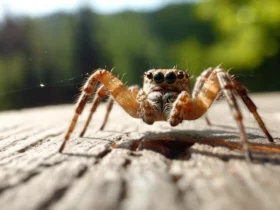Opossums, the only marsupials native to North America, are often misunderstood and sometimes feared creatures. They are commonly seen rummaging through trash cans or wandering through gardens at night, leading many people to wonder about their health risks, particularly regarding rabies. This article aims to clarify whether opossums can carry rabies, the reasons for their low risk, and what precautions you can take to safely coexist with these unique animals.
Table of Contents
What is Rabies?
Rabies is a viral disease caused by the rabies virus, which primarily affects the central nervous system of mammals. The virus is typically transmitted through the saliva of an infected animal, usually via bites. Once symptoms appear, rabies is almost always fatal, making it crucial to understand which animals can carry the disease and how to protect ourselves.
The classic symptoms of rabies include:
- Behavioral Changes: Infected animals may become unusually aggressive or fearful.
- Neurological Symptoms: These can range from disorientation to paralysis and can ultimately lead to death.
- Hydrophobia: In advanced stages, rabies can cause difficulty swallowing, resulting in an aversion to water.
Do Opossums Carry Rabies?
The short answer to the question “Do opossums carry rabies?” is that while they can theoretically contract the virus, the likelihood of this happening is incredibly low. Several factors contribute to this rarity:
1. Lower Body Temperature
One of the primary reasons opossums are unlikely to carry rabies is their body temperature, which averages between 94°F and 97°F (34°C to 36°C). This lower temperature is not conducive to the rabies virus, which tends to thrive in warmer-blooded animals. The cooler body temperature inhibits the virus’s ability to replicate effectively, making infection far less likely.
Research indicates that rabies prefers a host with a higher body temperature, and the unique physiology of opossums presents a natural barrier against the virus. This physiological characteristic has been a topic of interest among scientists studying rabies transmission and resistance.
2. Natural Resistance to Disease
Opossums possess a natural resistance to many diseases, including rabies. Their immune systems are particularly robust against various pathogens, which includes the rabies virus. Studies have shown that even when exposed to the virus, opossums have a significantly lower rate of infection compared to other wildlife, such as raccoons and skunks.
This resistance is not only beneficial for the opossums themselves but also contributes to their role in the ecosystem. By not carrying rabies, opossums can coexist more safely with other animals, including pets and humans.
3. Defensive Behaviors
Opossums are known for their unique defense mechanism of “playing dead.” When threatened, they can enter a state of shock that mimics death, making them less appealing to predators. This behavior serves as an effective survival tactic that minimizes encounters with potentially rabid animals, thereby reducing their risk of infection.
Additionally, opossums tend to be solitary creatures that avoid confrontations. They prefer to retreat rather than fight, which further decreases their chances of being bitten by an infected animal.
The Myth of Rabid Opossums
Despite the overwhelming evidence suggesting that opossums do not carry rabies, myths and misconceptions persist. Some people may assume that any wild animal seen at night is likely to be rabid, especially if it appears aggressive or sick. This can lead to unnecessary fear and hostility towards opossums.
Understanding the actual risk level is essential. In fact, opossums can serve a beneficial role in the environment by controlling pests. They eat a wide variety of insects, including ticks, which can carry Lyme disease. By keeping tick populations in check, opossums contribute positively to public health.
What Are the Signs of Rabies in Animals?
If an opossum were to contract rabies, it would exhibit symptoms similar to those seen in other mammals. However, it is essential to note that rabies is rare in opossums. Signs of rabies may include:
- Unusual Aggression or Agitation: Infected animals may show increased aggression or fearfulness.
- Disorientation or Lethargy: Rabid animals may appear confused or unable to coordinate their movements.
- Difficulty Walking or Paralysis: As the disease progresses, paralysis may set in, affecting the animal’s ability to move.
- Excessive Drooling or Foaming at the Mouth: This symptom is often associated with rabies but can also be caused by other health issues.
If you encounter an animal displaying these symptoms, it’s crucial to avoid contact and report it to local wildlife authorities.
Risks and Diseases Associated with Opossums
Although opossums are not significant carriers of rabies, they can still pose some health risks. Here are a few diseases that opossums can carry:
1. Leptospirosis
Opossums can carry leptospirosis, a bacterial infection that can be transmitted to humans through contact with contaminated water, soil, or food. Symptoms in humans may include flu-like symptoms such as fever, chills, headache, and muscle aches. In severe cases, it can lead to liver damage, kidney failure, and respiratory issues.
2. Salmonella
Like many wild animals, opossums can carry salmonella, which can lead to food poisoning in humans. This bacteria can spread through contact with opossum feces or contaminated surfaces, emphasizing the importance of proper hygiene and sanitation in areas where opossums are present.
3. Parasites
Opossums often harbor fleas, ticks, and mites, which can transmit various diseases. For example, ticks can spread Lyme disease, while fleas can carry tapeworms. It’s crucial to keep your pets protected with appropriate flea and tick prevention to avoid these risks.
How to Stay Safe Around Opossums
To minimize any health risks associated with opossums, consider the following precautions:
- Avoid Feeding Opossums: Do not leave pet food, garbage, or other food sources outside that could attract opossums or other wildlife. Secure your trash cans with tight-fitting lids.
- Keep Distance: If you encounter an opossum, it’s best to observe from a distance and avoid direct contact. Opossums are generally shy and non-aggressive, but it’s important to respect their space.
- Secure Your Property: Ensure that your outdoor pet areas are secured to discourage opossums from visiting. Use fencing or barriers to protect gardens and trash areas.
What to Do If You Are Bitten by an Opossum
If you are bitten by an opossum, even though the risk of rabies is low, you should take the situation seriously:
- Clean the Wound: Immediately wash the bite with soap and water to reduce the risk of infection.
- Seek Medical Attention: Visit a healthcare professional for a proper assessment of the wound and to determine if any treatment is necessary, including a tetanus shot or antibiotics.
- Report the Incident: Contact local animal control to report the bite and find out if any further action is needed.
Conclusion
In summary, while opossums are mammals and can theoretically contract rabies, the risk of them carrying the virus is extremely low. Their lower body temperature, natural resistance, and defensive behaviors contribute to their rarity as rabies carriers. Understanding the facts about opossums and rabies allows for a better coexistence with these often-misunderstood creatures. By taking precautions and remaining informed, we can appreciate the ecological role of opossums while ensuring the health and safety of our communities.








